SUMMARY
This is AI generated summarization, which may have errors. For context, always refer to the full article.
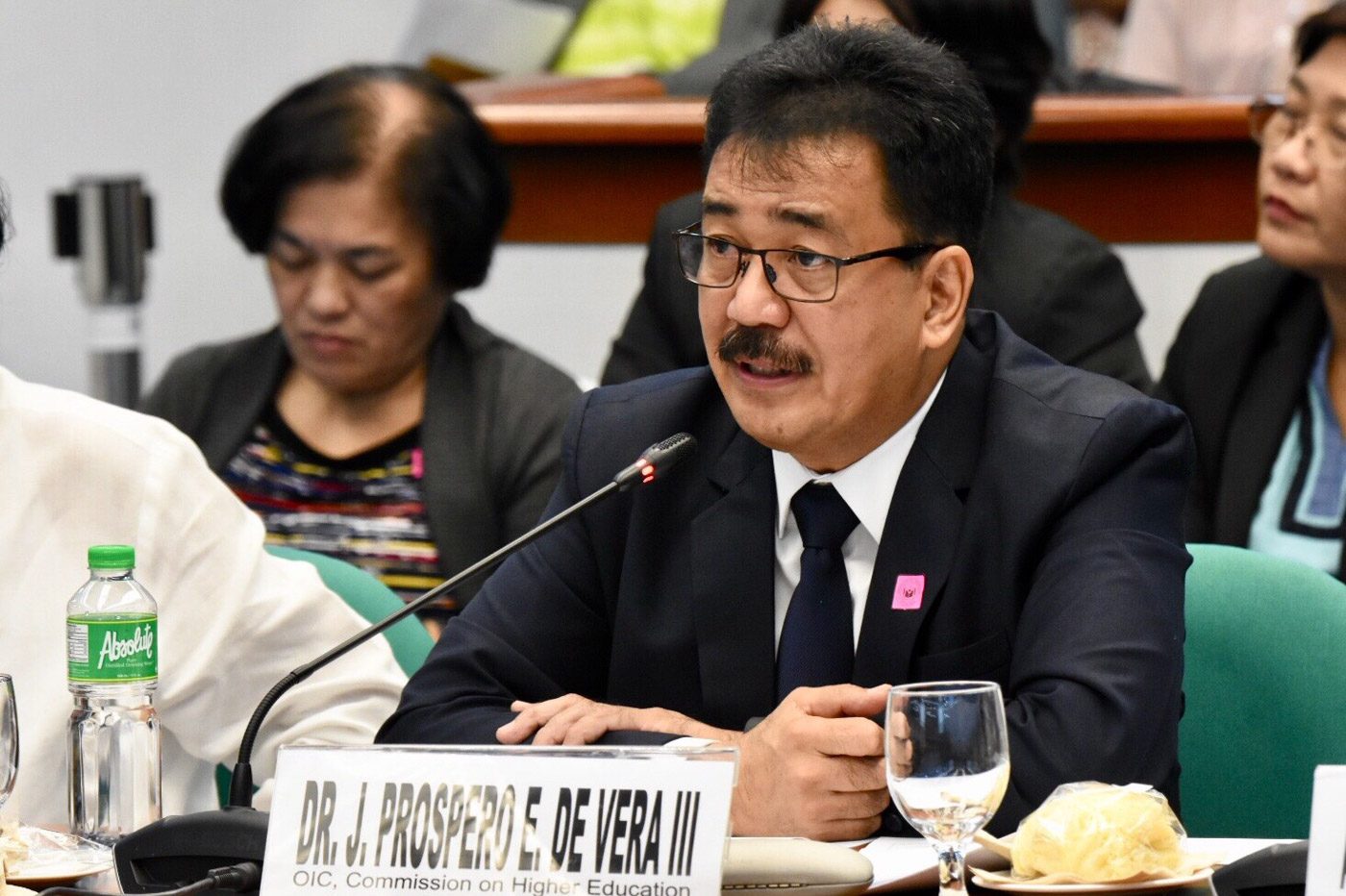
After drawing flak over his pronouncement that “flexible learning is here to stay” even after the pandemic, Commission on Higher Education (CHED) chair Prospero de Vera III hit back at critics, saying that they didn’t understand what the flexible learning system was.
In an interview with ANC’s Headstart on Monday, May 24, De Vera said that he was concerned about his critics because “they are confusing the issue.”
“They are saying flexible learning equals online learning,” De Vera said.
“I don’t know why they still don’t understand the meaning of flexible learning, or maybe they refuse to understand the meaning of flexible learning because they want to criticize the government,” he added.
“Flexible learning” for higher education institutions involves a combination of digital and non-digital technology, which CHED said doesn’t necessarily require internet connectivity. (READ: During pandemic, student climbs a mountain to send class requirement)
“When you say flexible learning, you mix and match the available options depending on the situation of students, teachers, connectivity, health situation on the ground,” De Vera said.
Mixed messaging?
However, in a separate interview with DZMM’s TeleRadyo also on Monday morning, De Vera said that CHED may allow face-to-face classes if the situation improves and if the facilities are ready.
“Ang ibig sabihin ko lang ay ipagpapatuloy natin itong policy na ito (flexible learning) sa susunod na school year. Hindi tayo puwedeng magbukas ng full face-to-face (classes) pagdating ng Agosto kasi matindi pa ang pandemya,” he said.
(What I meant was, we will continue the flexible learning system for the next school year. We still cannot open schools for full face-to-face classes in August because of the raging pandemic.)
The CHED chair added that the commission also cannot open schools as most faculty, students, and administrators have not yet gotten vaccinated.
“Kaya [hindi] pa ligtas na payagan ang classroom na 40 to 50 students (That’s why it is not yet safe to have classrooms with 40 to 50 students). We cannot do that when the semester opens,” De Vera said.
Freedom to choose
De Vera earlier said that universities and colleges have the freedom to choose which mode of instruction would be effective for them. Some have been using the purely online mode, others purely modular, and there are those using a combination of online and modular.
In a webinar on Friday, De Vera explained that CHED adopted the flexible learning policy as they didn’t want to “run the risk [of] exposing our educational stakeholders to the same risk if another pandemic comes in.”
Aside from this, De Vera said that going back to the traditional face-to-face classes would waste the “investments in technology, teachers’ training, and retrofitting of our facilities.”
However, ever since schools shifted to remote education in 2020, students have been struggling to cope with the demands of the system. Many students and groups have also called for an “academic freeze” as the country fights the pandemic. They pointed out that the coronavirus lockdown affected household finances, and that many Filipinos don’t even have access to a computer or the internet.
Aside from this, remote learning has affected students and faculty physically and mentally.
Several groups and advocates have been pushing for the government to safely reopen schools as they worry about the quality of education during the pandemic.
No ‘gross negligence’
De Vera also responded to Kabataan Party-list Representative Sara Elago’s accusation about CHED’s supposed “gross negligence” in responding to students’ needs.
“If she’s talking about gross negligence, she should address the question to the Congress…. I don’t know what she’s referring to when she said that there’s no preparation,” De Vera said.
“I think this is a politically loaded question. As far as the commission is concerned, everything is being done within the health parameters and within the financial parameters of the government,” he added.
De Vera said that the “insistence on giving assistance to students by giving them internet load and gadgets” was already discussed in Congress.
“She’s a member of the House of Representatives. My question is, why was she [not] able to convince the Congress to do it?” De Vera asked.
On Tuesday, May 18, De Vera said that if medical schools that were allowed to hold “limited” face-to-face classes have zero transmission of COVID-19, CHED will ask President Rodrigo Duterte to allow engineering, information technology, industrial technology, and maritime programs to hold limited in-person classes as well. – Rappler.com
Add a comment
How does this make you feel?
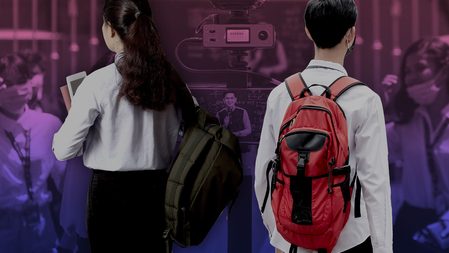
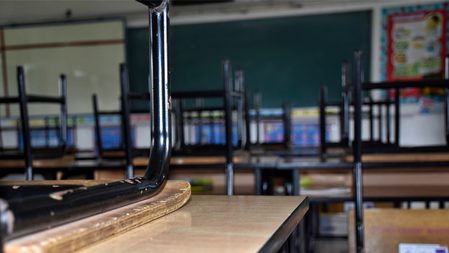
![[Time Trowel] Mentorship matters](https://www.rappler.com/tachyon/2024/04/mentorship-matters.jpg?resize=257%2C257&crop_strategy=attention)

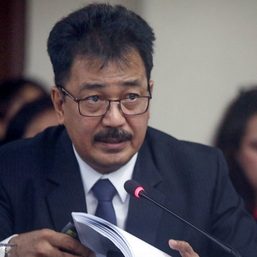
![[ANALYSIS] The multiplier effect of negligence in education](https://www.rappler.com/tachyon/2024/04/The-multiplier-effect-of-negligence-in-education.jpg?resize=257%2C257&crop=277px%2C0px%2C720px%2C720px)
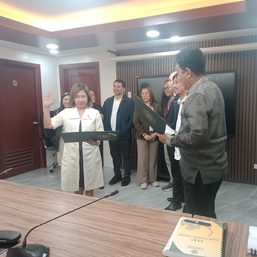
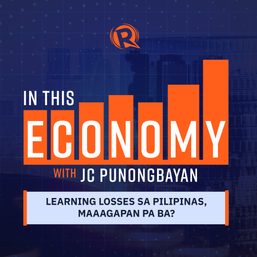
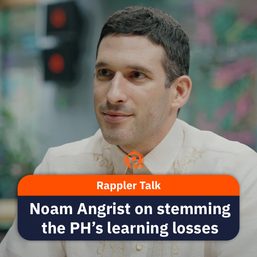
![[EDITORIAL] Ano sana ang takeaway ni Sara Duterte sa firesale ng mga laptops?](https://www.rappler.com/tachyon/2023/05/animated-DEPED-laptop-fiasco-carousel.jpg?resize=257%2C257&crop_strategy=attention)
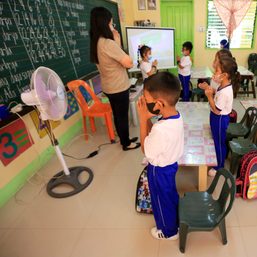
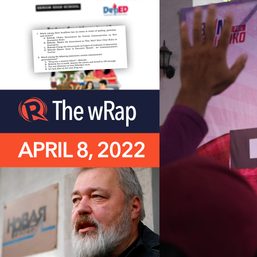
There are no comments yet. Add your comment to start the conversation.